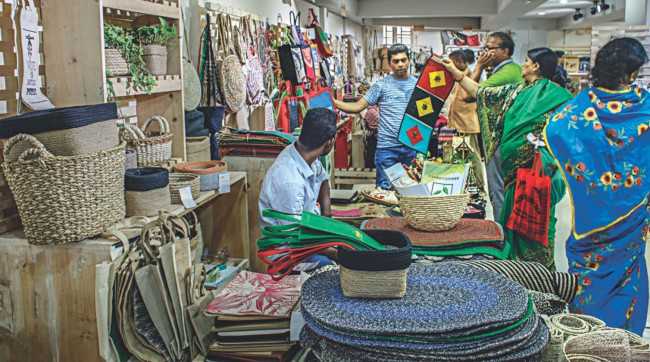Why are SMEs not availing the govt directed loan opportunities?

Image: Collected
The pandemic has afflicted all businesses, big or small, in the united states as elsewhere on the globe. But while the losses they suffered varied widely-with the tiny businesses being disproportionately affected-big businesses, particularly large industries and the service sector, have already been relatively quick to find their way to recovery by accessing loan opportunities granted beneath the government-announced stimulus packages, and by using the business-friendly environment following the lifting of the lockdown. In comparison, small and medium enterprises (SMEs) and low-income groups, including farmers, have been slow to react to and access the loan benefits, largely as a result of the reluctance of the banks, according to a written report by The Daily Star. That is indeed a cause for concern. For months, we have been urging the authorities to expedite the loan disbursement process for the hardest-hit groups and businesses, but the progress so far has been sluggish to the idea of being disappointing.
That is despite recent initiatives by the central bank and the government to speed up the procedure. While 81.87 percent of the Tk 33,000 crore package for large industries and the service sector was approved by the lenders by October 6, only about a quarter of the Tk 20,000-crore package dedicated to the SME sector was disbursed, amounting to Tk 5,882 crore among 26,664 borrowers since September. The situation is believe it or not disconcerting for the farming sector which, as of September 30, saw only Tk 1,869 crore disbursed among 87,526 borrowers beneath the Tk 5,000-crore package for the sector. Several factors have already been discovered for the slow developments in the SME sector, including the reluctance of lenders to market the packages and their "cautious stance" as a result of the fragile health of the SMEs. Usually, SMEs make a huge part of their profit before Eid-ul-Fitr and Eid-ul-Azha, nonetheless, they didn't do so during the last two festivals. They are also less organized when compared to big businesses, which were quick to submit the mandatory documents and in addition their business continuity plans to the banks, helping them make a decision quickly, according to a specialist.
Whatever the circumstances, the central bank cannot avoid its responsibility in this regard. It must do more to eliminate all regulatory and circumstantial barriers to accessing the loans also to get the banks to increase loan disbursement among the tiny businesses and low-income professionals. Also, considering a large number of men and women who rely upon the cottage, micro, small and medium enterprises in Bangladesh, the current allocations beneath the packages also need to be increased. SMEs will be the backbone of our economy. They contribute about one-fourth of the country's gross domestic product, delivering jobs, growth, and prosperity for millions of men and women across the country. We must do more for them, for our very own good.
Source:
Tags :
Previous Story
- Big borrowers gain, SMEs still in pain
- DU mentorship Program to greatly help cottage-to-medium enterprises...
- SME sector needs insurance policy support to create...
- Prime Bank joins SME Finance Forum to market...
- Garment factories in SME category to get cash...
- SMEs are in dire need of a lifeline...
- 67% of SMEs forced to shut businesses because...
- Entrepreneurship and SMEs are more important than ever...